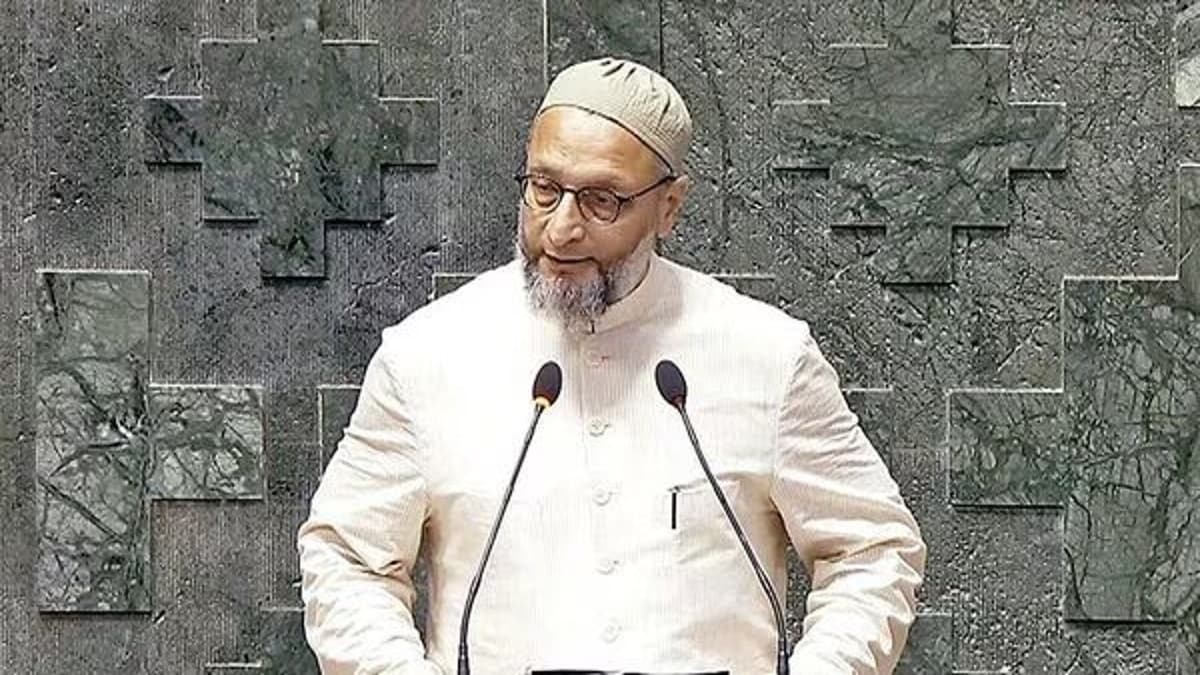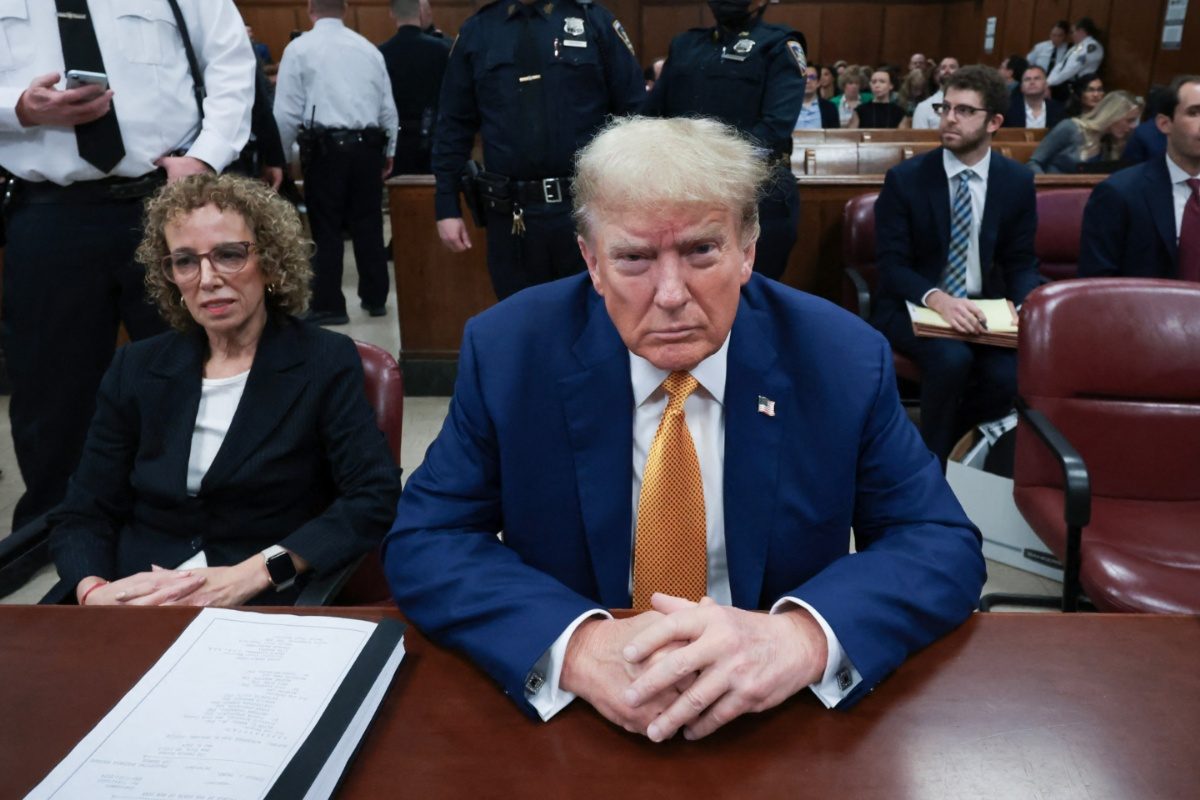Inappropriate Oath: How undue sloganeering in Parliament defeats the cause of Constitution

The question is whether it is appropriate to raise slogans and demonstrate adherence to another country while taking an oath in Parliament, and whether this is a ground for disqualification
“Jai Bheem, Jai Meem, Jai Telangana, Jai Filisteen (Palestine)"—this is how five-time member of Parliament, representing the Hyderabad constituency, Asaduddin Owaisi (AIMIM Chief), chose to end his oath during the swearing-in ceremony for Members of Parliament (MPs) in the 18th session of the Lok Sabha earlier this week. This has caused great controversy in the country. The slogan “Jai Bheem-Jai Meem”, initially coined by Majlis-e-Ittehadul Muslimeen, was initially aimed at creating a new voting strata of Dalits and Muslims. Jai Bheem literally means victory to Bheem, in ode to Bhimrao Ambedkar, while “Jai Meem” is the Urdu alphabet equivalent to the above phrase, meant to attract Muslim voters. This slogan has already been the subject of much dissension, with Muslim appellants in the Supreme Court of India expressing strong reservations against the Karnataka High Court order upholding the ban of the hijab in educational institutions while citing Ambedkar’s antithetical views on the hijab system. However, what really caused a furore was when Owaisi said “Jai Filisteen (Palestine)” at the end of his oath, after swearing his allegiance to the Constitution of India and to uphold the sovereignty and integrity of India as a nation. Now, there is no wrongdoing in discussing issues of other countries in Parliament; this is nothing new. The ongoing Russia-Ukraine conflict was debated and discussed heavily in Parliament in 2022, with Dr. Jaishanker, External Affairs Minister, elucidating a strong reply to questions from fellow Parliamentarians, explaining that the issue must be discussed as foreign policy is a subject of maximum consensus in the country. He acknowledged the need to discuss the matter, as the situation in Ukraine would have direct implications for our national economy and foreign policy, amongst other things. However, to make a statement such as “Jai Filisteen”, which translates into “Victory or Long Live Palestine”, which is in effect demonstrating loyalty and pleading allegiance to another nation, while taking a constitutional pledge of devotion, fealty, and loyalty to only your own country, India, in Parliament, seems unnecessary and attention-seeking at best. Taking an oath in Parliament as an MP is not a fickle matter or the correct place to be making political statements, that too on matters concerning other nations. The third schedule of the Indian Constitution contains the parliamentary oath. Through this, the members affirm to bear true faith and allegiance to the Constitution of India, uphold India’s sovereignty and integrity, and faithfully discharge their duty. The oath is crucial in nature, as just winning an election or starting a term does not allow an MP to take part in House proceedings. As prescribed by the Constitution (Article 99), an MP must take an oath or affirmation in order to debate in the Lok Sabha. The draft Constitution prepared by the committee chaired by B R Ambedkar initially did not invoke God in any oath, emphasising a solemn and sincere promise to uphold the Constitution. However, during later Constituent Assembly discussions, members such as K T Shah and Mahavir Tyagi suggested amendments to include God in the President’s oath. Despite disagreements, Ambedkar accepted the amendments, allowing for the significance of invoking God for certain individuals. The last modification to the oath came with the Constitution (Sixteenth Amendment) Act of 1963, where this amendment added the commitment to uphold India’s sovereignty and integrity, following recommendations from the National Integration Council. No one is arguing against Palestine; however, the question is whether it is appropriate to raise slogans and demonstrate adherence to another country while taking an oath in Parliament, and whether this is a ground for disqualification. These circumstances are unprecedented. This is what Article 102 of the Constitution says about disqualification as a member of Parliament: “A person shall be disqualified for being chosen as and for being a member of either House of Parliament if: If he holds any office of profit under the Government of India or any State, except an office declared by Parliament by law not to disqualify its holder. He is of unsound mind and so declared by a competent court. He is an undischarged insolvent. He is not a citizen of India, has voluntarily acquired the citizenship of a foreign state, or acknowledges allegiance or adherence to a foreign state. He is disqualified by any law made by Parliament. Any person shall be disqualified under the Tenth Schedule, known as the Anti-Defection Act, which disqualifies MPs for defection to any other political party.” Though slogans made after the oath-taking are not to go on record, Parliamentary Affairs Minister Kiren Rijiju has commented that he will be reviewing the rules regarding the matter. It has been an unusually fiery election, and the fire continues to burn even afterwards. Either way, amidist Jai Bheem, Meem, or any other state or country, the only slogan that should truly matter is Jai Hind! The author is a freelance journalist and features writer based out of Delhi. Her main areas of focus are politics, social issues, climate change and lifestyle-related topics. Views expressed in the above piece are personal and solely those of the author. They do not necessarily reflect Firstpost’s views.






0 Comments